The benefits of cold water exposure
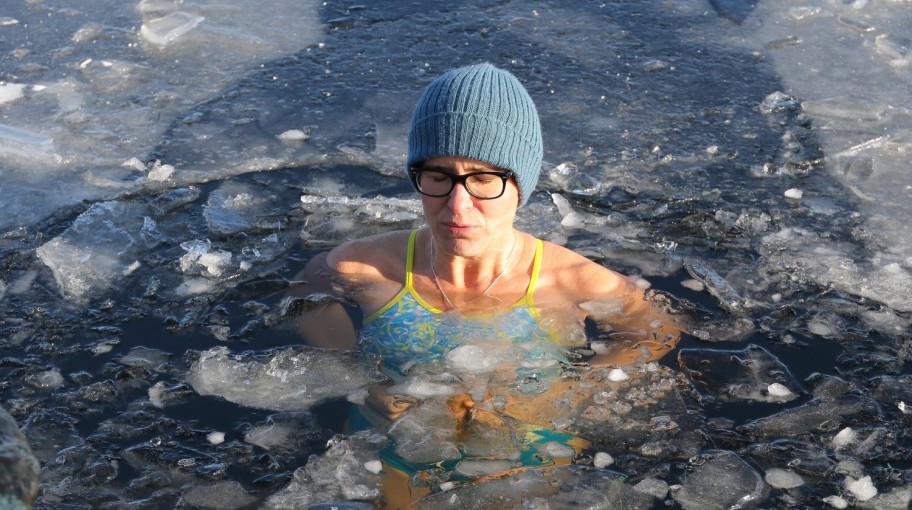
Written by expert Gilly McArthur
Cold water exposure has seen a huge boom in recent years, with people immersing their bodies in cold water (<15°) for health or therapeutic benefits, either outside in nature or at home in a cold tub or a cold shower.
If you’re thinking about dipping your toe into the world of deliberate cold water exposure, we’ve outlined some of the potential benefits below.
Limited research has shown you only need about 2 minutes in a session and 11 minutes a week to see the benefits, although, there isn’t a one-size-fits-all approach so it’s important to listen to your body and progress at a pace that feels comfortable for you.
You do you. Ditch the Strava!
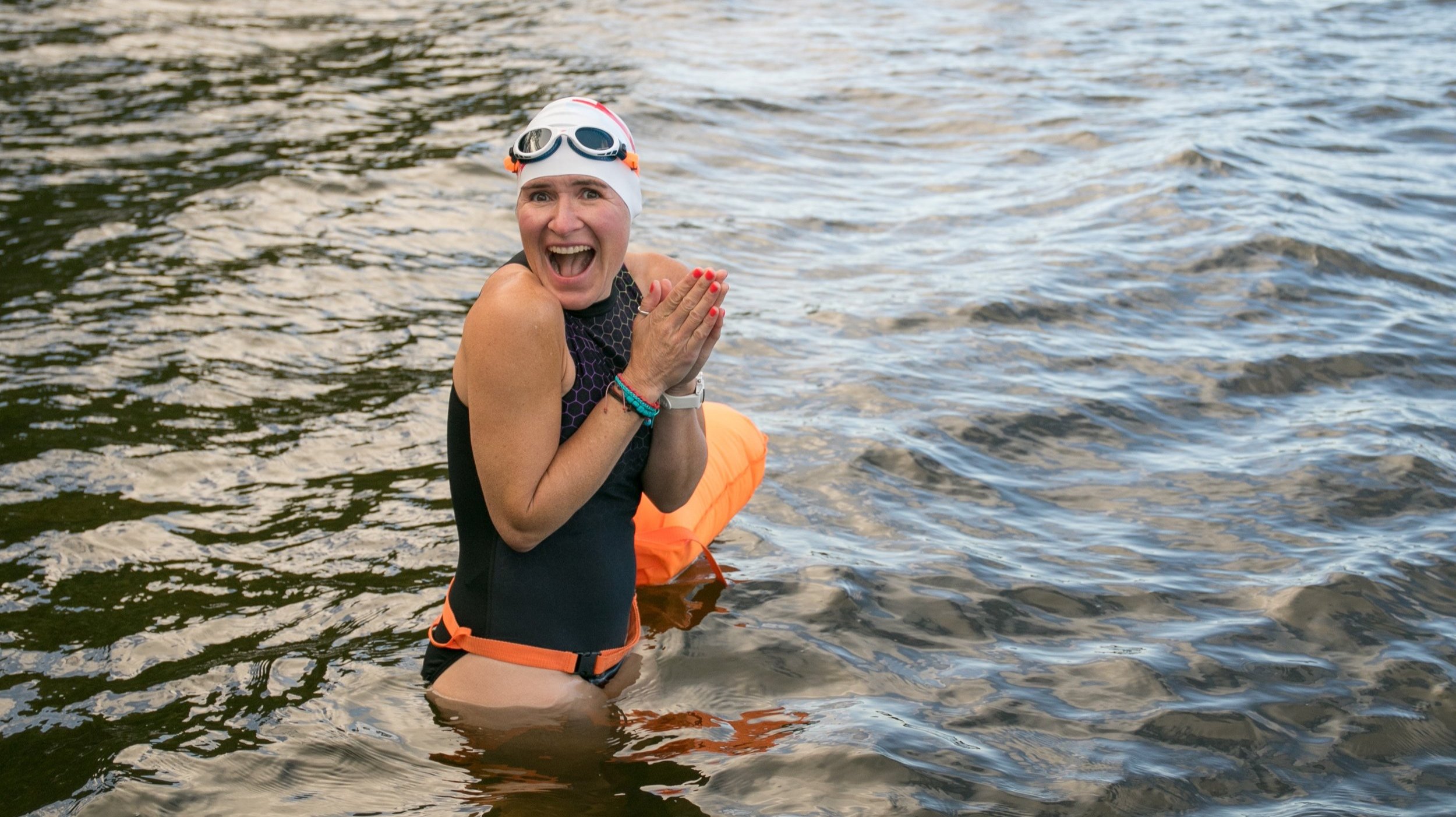
Although the applications and research are still in their infancy in many ways, deliberate cold water exposure has several potential benefits. In 1600 BC a papyrus noted the beneficial effects of cold water on human physiology, this was based on a text from around 2500 BC and by the 4th Century BC Hippocrates spoke of the benefits of the cold.
In philosophy Nietzsche believed that cold weather was exhilarating and a tonic to boost well-being. He believed that to experience the cold was beneficial for body and mind and it was an acute way to feel connected to himself, to feel alive and to remain alert in an increasingly comfortable life.
What’s interesting is it doesn’t need to be that cold.
Although ice water has magical properties simply accessing a natural environment, is linked to improved mental health and wellbeing.
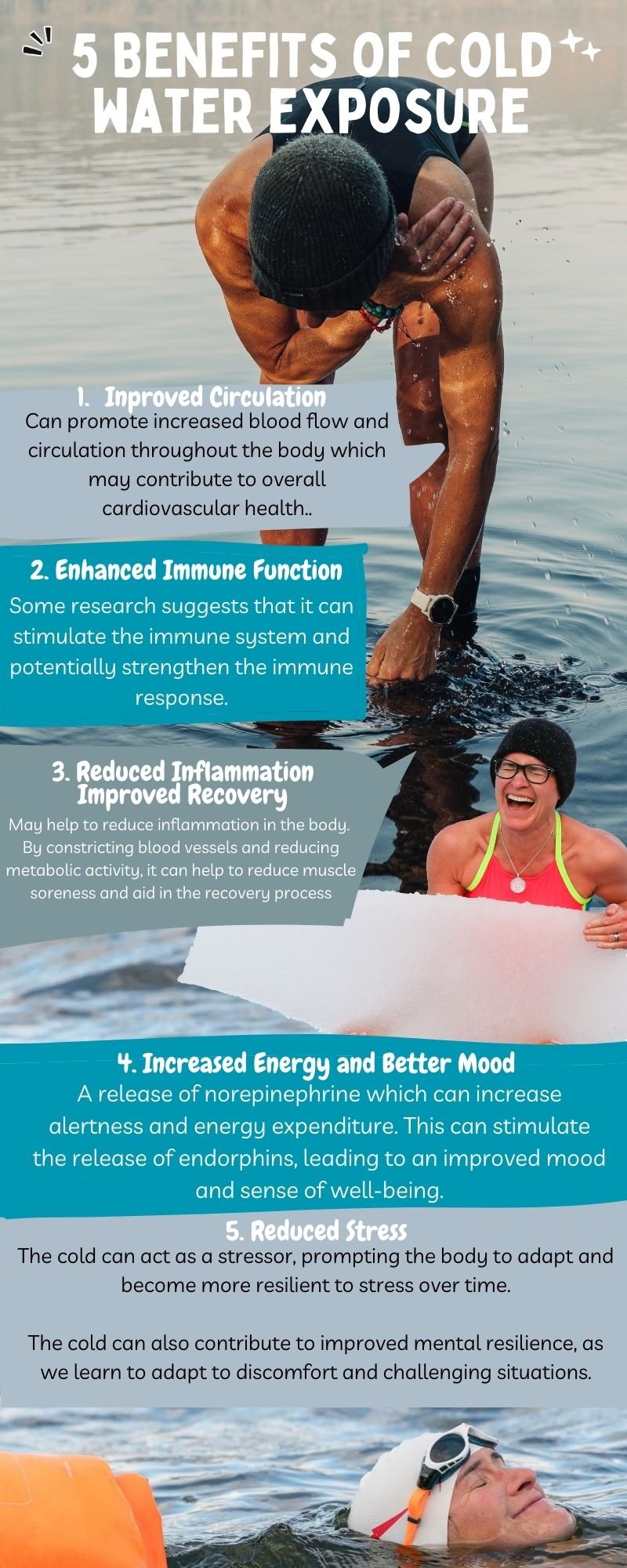
Physical Benefits
The physiological response to cold water exposure includes vasoconstriction (narrowing of blood vessels) and a release of norepinephrine, which can increase alertness and energy expenditure. This can stimulate the release of endorphins, leading to an improved mood and sense of well-being. Essentially, exposure to cold water delivers a solid hard hit of the good hormones for well-being.
In the context of sports recovery, we all know the cold is believed to help by reducing muscle inflammation and soreness, it accelerates the removal of metabolic waste products from muscles, and potentially reduces the risk of tissue damage due to excessive inflammation.
Mental Benefits
The cold can act as a stressor, prompting the body to adapt and become more resilient to stress over time. This process can help people manage their stress levels more effectively - something we can all benefit from!
“It’s true that leaning into the cold does feel like a reset button.” - Gilly McArthur
If you can practice cold water exposure in nature this can also provide a form of nature “therapy”, allowing us to connect with the outdoors and experience a sense of awe and tranquility.
The science of the “Blue Mind” has been well documented. We are woefully unconnected to our natural selves and dipping or swimming outside can help us ground back to our primal state.
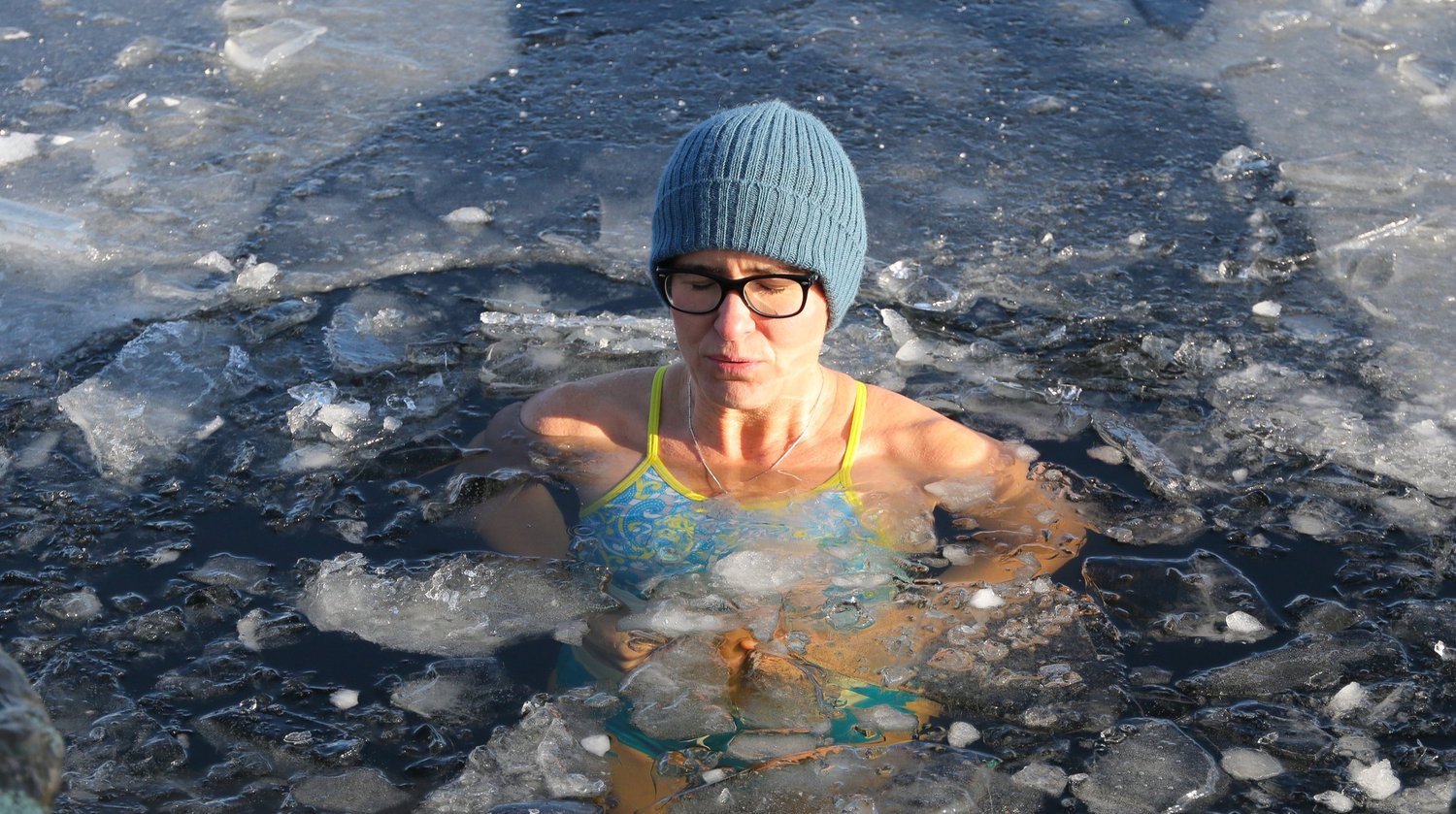
If you’re thinking of giving cold water a go, we recommend you start by getting a supportive and qualified coach. I’m a swim coach, climber and lifeguard based in the Lake District and I’ve been axing my way through the ice into tranquil cold spots for 10 years. I’ve contributed to books, films and publications on the subject of the cold and green and blue spaces for well-being.
As a passionate advocate I love introducing all sorts of people to the cold, from team GB athletes and professional rugby players to 80 year old grandparents and underrepresented groups in the outdoors.
This year, I’ll be part of a team running a program in conjunction with the University of Portsmouth and the NHS on social prescribing openwater to help alleviate depression and anxiety. Wetsuits and non wetsuits are welcome - the project will gather more data on why leaning into getting outside is great for us! Join me.
Read more about Gilly’s offerings here, or follow along on her cold water journey over on Instagram.
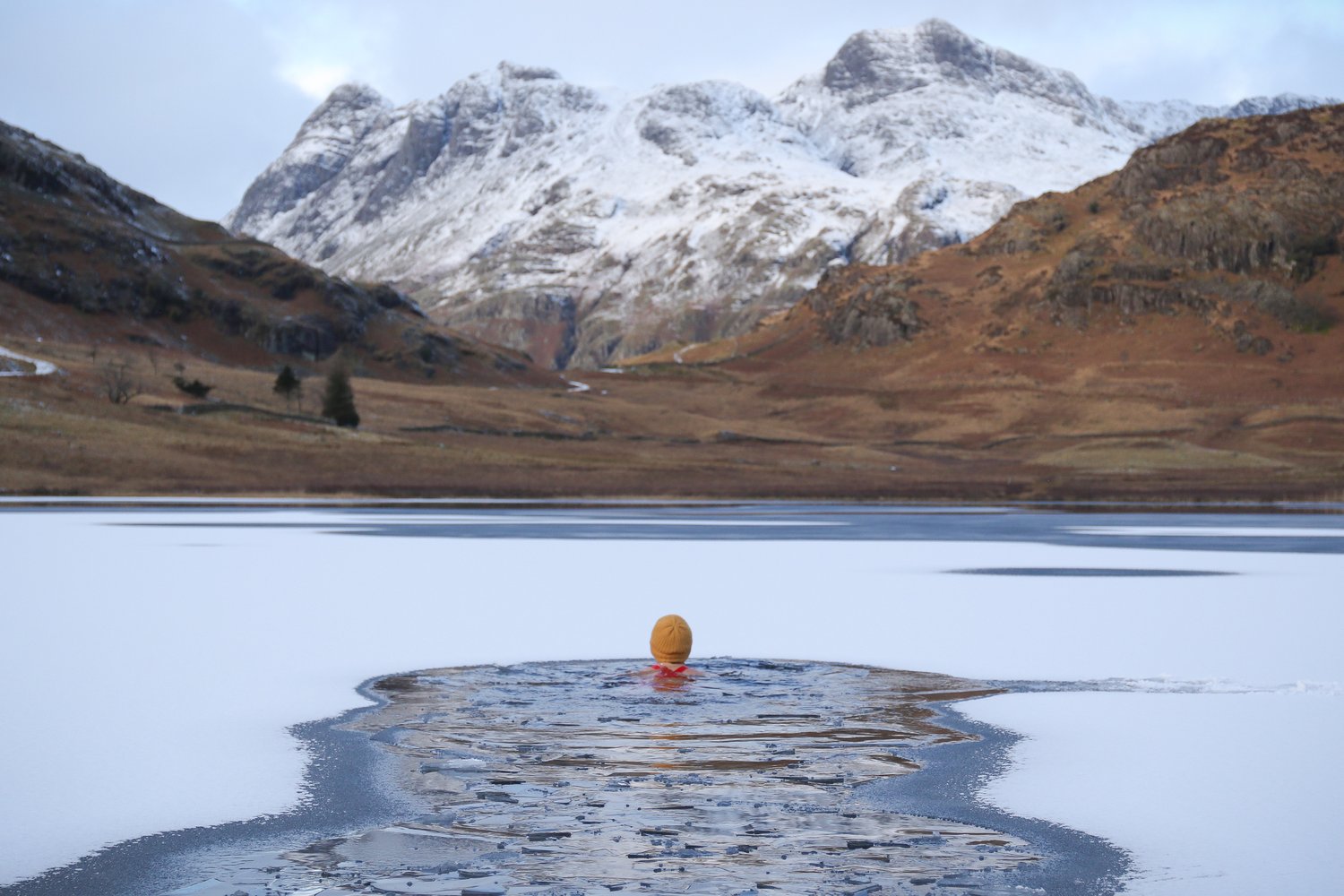
If you don’t want to use a coach for that first session, we recommend you find a buddy, or social group to go with in case of an emergency. It’s great fun and there are now many groups across the UK.
Social media is a good place to start and there are a huge number of guide books on how to find bodies of water like lakes, rivers and outdoor lidos to take up the sport.
ENJOY!